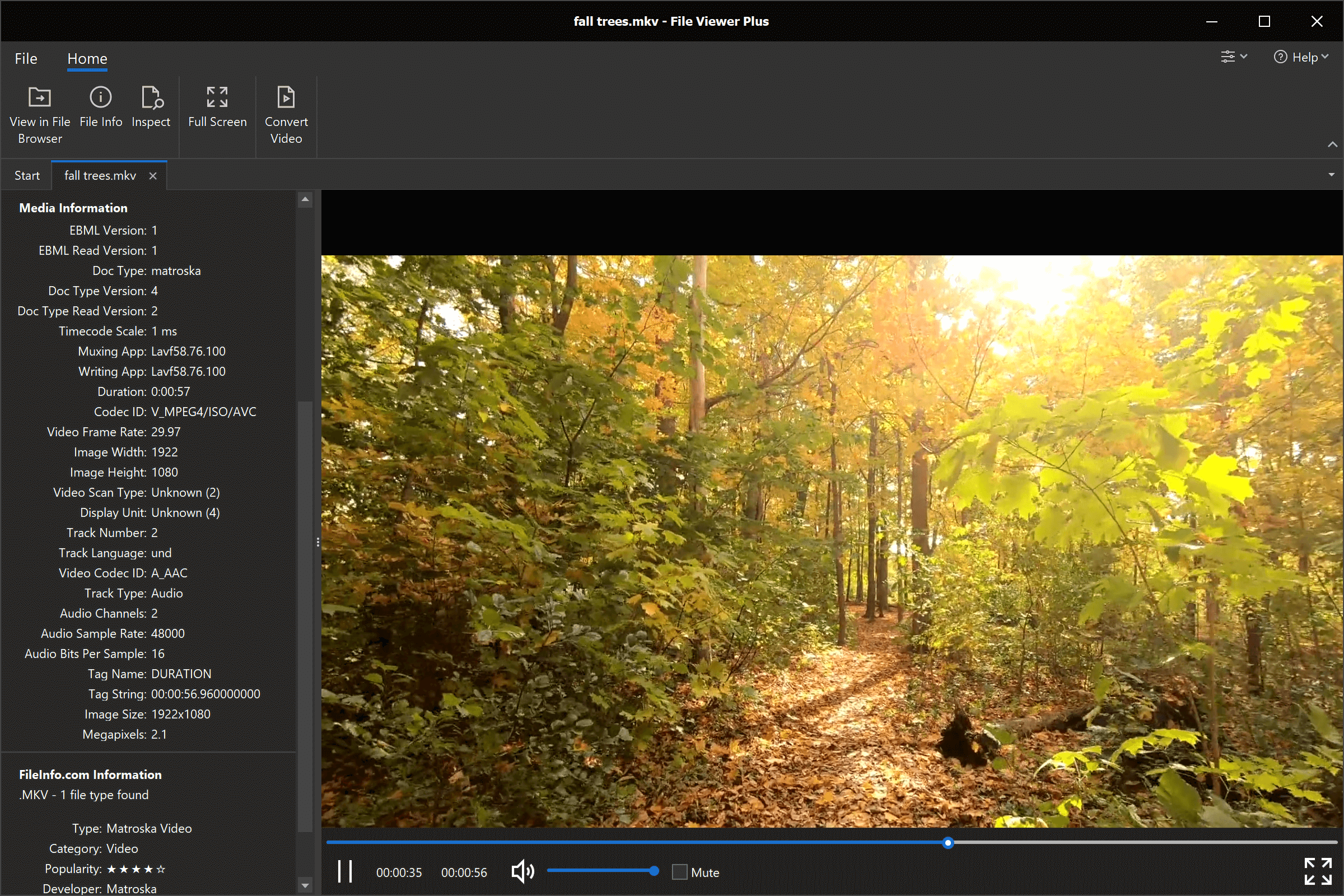Why MKV File Type Is The Ultimate Format For Your Media Needs
Have you ever wondered why MKV has become the go-to format for media enthusiasts worldwide? This versatile file type has taken the digital world by storm, and there's a reason behind its growing popularity. Whether you're a casual user or a tech-savvy professional, MKV offers features that no other format can match. In this article, we'll dive deep into everything you need to know about this powerful file type.
Imagine downloading a movie or TV show episode, only to find out it doesn't play smoothly on your device. Frustrating, right? That's where MKV comes in. This container format has revolutionized the way we store and play multimedia files. With its ability to handle multiple audio tracks, subtitles, and high-quality video, MKV has become the standard for modern media consumption.
In today's digital age, having the right file format matters more than ever. As streaming services and digital downloads continue to grow, understanding MKV and its advantages can enhance your media experience. So, whether you're looking to convert files, edit videos, or simply enjoy seamless playback, this article has got you covered.
What Exactly is MKV File Type?
Let's start with the basics. MKV, short for Matroska Video, is an open-standard container format that can hold an unlimited number of video, audio, picture, and subtitle tracks in a single file. Think of it as a digital toolbox that stores all your media elements in one place. Unlike other formats, MKV is highly flexible and adaptable, making it the preferred choice for many users.
One of the coolest things about MKV is its open-source nature. This means developers can constantly improve and enhance the format to meet evolving user needs. Plus, its compatibility with various platforms and devices ensures you won't face any playback issues. It's like having a universal key that works with every lock.
Why MKV Stands Out Among Other Formats
So, what makes MKV so special? Here are some key reasons:
- Sienna May Ivery Everything You Need To Know About Ellen Pompeos Daughter
- Explore Alice Rosenblum On Onlyfans Photos Videos More
- Multiple Tracks: MKV supports multiple audio and subtitle tracks, allowing you to enjoy your content in different languages or with custom subtitles.
- High Quality: The format preserves the original quality of your media files, ensuring crystal-clear video and audio.
- Compatibility: MKV works seamlessly with most modern devices and software, eliminating the need for constant conversions.
- Customization: You can easily edit and modify MKV files to suit your preferences, such as adjusting video resolution or adding new tracks.
These features make MKV not just a format, but a complete media solution for users who demand more from their digital files.
The Evolution of MKV: How It Became a Game-Changer
Back in 2002, the Matroska project was launched with the goal of creating an advanced multimedia container format. Fast forward to today, MKV has evolved into one of the most widely used formats in the industry. Its journey from a niche format to a global standard is nothing short of impressive.
But how did MKV achieve this level of success? It all boils down to its innovative design and user-centric approach. By addressing the limitations of older formats like AVI and MP4, MKV offered a superior alternative that met the demands of modern media consumers. And as technology advanced, MKV continued to adapt, ensuring it remained relevant in an ever-changing digital landscape.
Key Milestones in MKV's Development
Here are some notable milestones in the history of MKV:
- 2003: The first stable release of the Matroska format.
- 2005: Introduction of the MKV file extension for video files.
- 2010: Widespread adoption by major media players and streaming platforms.
- 2020: Continued growth and support from the open-source community.
Each of these milestones contributed to MKV's rise as a dominant force in the world of digital media.
Advantages of Using MKV File Type
Now that we've covered the basics, let's talk about the benefits of using MKV. Whether you're a casual user or a professional editor, this format has something to offer everyone. Here are some of the top advantages:
1. Superior Quality
When it comes to preserving the original quality of your media files, MKV is unmatched. Its advanced compression techniques ensure that your videos and audio remain crisp and clear, even at higher resolutions. This is particularly important for users who want to enjoy 4K or even 8K content without sacrificing quality.
2. Flexibility and Customization
One of the greatest strengths of MKV is its flexibility. You can easily add, remove, or modify tracks within the file, giving you full control over your media experience. Whether you want to switch between languages or add custom subtitles, MKV makes it simple and straightforward.
3. Cross-Platform Compatibility
Gone are the days of worrying about whether your files will play on a specific device. MKV is compatible with virtually all modern platforms, including Windows, macOS, Linux, Android, and iOS. This ensures a seamless playback experience across different devices and operating systems.
How to Open and Play MKV Files
Playing MKV files is easier than you might think. Most modern media players, such as VLC, MPC-HC, and KMPlayer, support MKV natively. However, if you're using an older player or a device that doesn't support MKV, you may need to install a codec pack or convert the file to a compatible format.
Here's a quick guide to playing MKV files:
- Download and install a media player that supports MKV, such as VLC.
- Open the player and navigate to the MKV file you want to play.
- Select the desired audio and subtitle tracks from the player's settings menu.
- Enjoy your content without any interruptions!
By following these simple steps, you can ensure a smooth playback experience for all your MKV files.
Troubleshooting Common Issues
While MKV is generally easy to work with, you might encounter some issues from time to time. Here are a few common problems and how to fix them:
- Playback Issues: If your MKV file doesn't play, try updating your media player or installing a codec pack.
- Audio Sync Problems: Use a tool like MKVToolNix to adjust the audio delay within the file.
- Subtitles Not Showing: Check the subtitle settings in your media player and ensure the correct track is selected.
With these tips, you'll be able to resolve most issues quickly and efficiently.
Converting Files to MKV
If you have media files in other formats and want to convert them to MKV, there are several tools available to help you. Programs like HandBrake, FFmpeg, and MKVToolNix offer user-friendly interfaces and advanced features to make the conversion process a breeze.
Here's how to convert files to MKV using MKVToolNix:
- Download and install MKVToolNix on your computer.
- Open the program and drag your source file into the interface.
- Add any additional tracks, such as audio or subtitles, that you want to include.
- Set the desired output options and start the conversion process.
Once the conversion is complete, you'll have a fully functional MKV file ready to use.
Why Convert to MKV?
Converting your files to MKV offers several benefits, including:
- Improved Compatibility: MKV works with virtually all modern devices and platforms.
- Enhanced Quality: The format preserves the original quality of your media files.
- Greater Flexibility: You can easily add or modify tracks within the MKV file.
These advantages make MKV the ideal choice for users who want to maximize the potential of their digital media.
Editing MKV Files: Tips and Tools
Editing MKV files is a breeze with the right tools. Programs like MKVToolNix, MKVMergerGUI, and MKVEdit offer powerful features that allow you to customize your files to perfection. Whether you want to split, merge, or modify your MKV files, these tools have got you covered.
Here are some tips for editing MKV files:
- Backup Your Files: Always create a backup before making any changes to your MKV files.
- Use Advanced Settings: Explore the advanced options in your editing software to unlock its full potential.
- Test Your Changes: Play back your edited files to ensure everything works as expected.
By following these tips, you can edit your MKV files with confidence and precision.
Popular MKV Editing Tools
Here are some of the top tools for editing MKV files:
- MKVToolNix: A versatile tool for merging, splitting, and modifying MKV files.
- MKVMergerGUI: A user-friendly interface for MKVToolNix that simplifies the editing process.
- MKVEdit: A lightweight tool for basic MKV editing tasks.
With these tools at your disposal, you'll be able to edit MKV files like a pro.
Future of MKV: What Lies Ahead?
As technology continues to evolve, so does MKV. With ongoing support from the open-source community and its widespread adoption by major players in the industry, the future looks bright for this versatile format. From enhanced features to improved compatibility, MKV is poised to remain a dominant force in the world of digital media for years to come.
So, whether you're a casual user or a professional editor, there's never been a better time to embrace MKV and all it has to offer. With its unmatched quality, flexibility, and compatibility, MKV is truly the ultimate file type for your media needs.
Conclusion
In conclusion, MKV file type has proven itself as the gold standard for digital media. Its ability to deliver high-quality video and audio, along with its flexibility and compatibility, makes it an indispensable tool for anyone who values their media experience. By understanding the advantages and capabilities of MKV, you can take your digital content to the next level.
So, what are you waiting for? Dive into the world of MKV and discover the endless possibilities it offers. And don't forget to share your thoughts and experiences in the comments below. Together, let's continue to explore the exciting world of digital media!
Table of Contents
- What Exactly is MKV File Type?
- Why MKV Stands Out Among Other Formats
- The Evolution of MKV: How It Became a Game-Changer
- Key Milestones in MKV's Development
- Advantages of Using MKV File Type
- Superior Quality
- Flexibility and Customization
- Cross-Platform Compatibility
- How to Open and Play MKV Files
- Troubleshooting Common Issues
- Converting Files to MKV
- Why Convert to MKV?
- Editing MKV Files: Tips and Tools
- Popular MKV Editing Tools



Detail Author:
- Name : Prof. Richard Nitzsche
- Username : junius16
- Email : ryan.bernhard@treutel.com
- Birthdate : 1982-02-22
- Address : 320 Macejkovic Avenue Port Kileystad, CO 03437
- Phone : (726) 259-6963
- Company : Schoen-Bahringer
- Job : Food Preparation Worker
- Bio : Hic hic eos culpa voluptatem non et. Dolor ab vel qui voluptates laudantium numquam. Iusto qui laborum voluptatem animi ipsum molestiae. Eum quidem eligendi id sit. Rem harum labore rerum velit quas.
Socials
instagram:
- url : https://instagram.com/ken.parker
- username : ken.parker
- bio : Amet repellat omnis quia dignissimos. Repellat maiores numquam culpa eius.
- followers : 5629
- following : 2741
twitter:
- url : https://twitter.com/kparker
- username : kparker
- bio : Totam iste molestiae dolorem voluptate. Accusamus assumenda necessitatibus hic non. Labore doloremque ea cumque. Omnis quis tempore aut.
- followers : 4935
- following : 2621
tiktok:
- url : https://tiktok.com/@parkerk
- username : parkerk
- bio : Porro et ut iste qui. Aspernatur sequi tenetur voluptas impedit officiis ea.
- followers : 675
- following : 1337
facebook:
- url : https://facebook.com/ken_dev
- username : ken_dev
- bio : Est aut neque voluptas et. Qui laudantium voluptate aut consequatur adipisci.
- followers : 3616
- following : 484
linkedin:
- url : https://linkedin.com/in/ken_parker
- username : ken_parker
- bio : Et odio deleniti libero enim.
- followers : 2235
- following : 2865